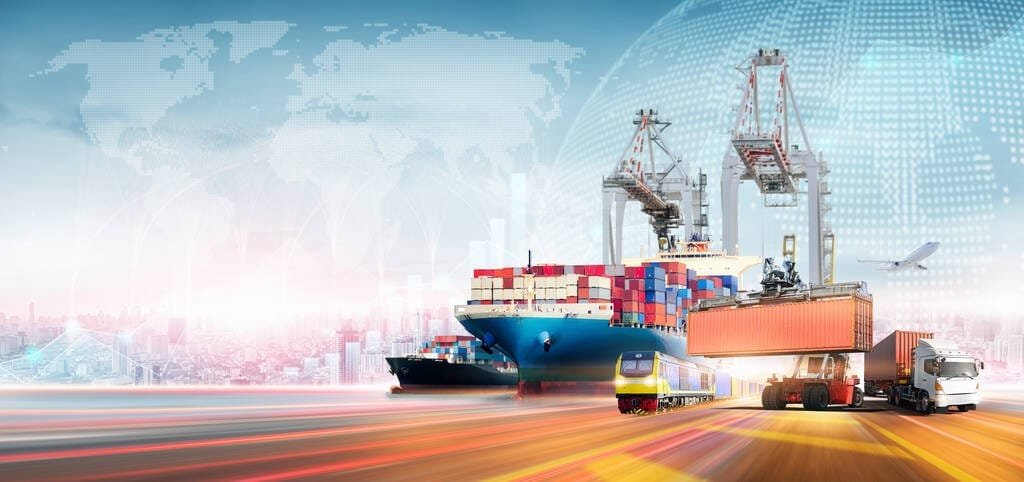“Explore the essentials of International Logistics with our complete guide! Uncover best practices and future trends to thrive in the industry.
International logistics plays a pivotal role in facilitating global trade by ensuring the efficient transportation of goods, coordinating intricate supply chains, and guaranteeing timely delivery. These elements are essential not only for maintaining the flow of products but also for fostering international economic growth and building strong partnerships across borders.
Understanding International Logistics
International logistics refers to the strategic planning, implementation, and control of the movement of goods across international borders. It encompasses a wide range of activities, including transportation, customs clearance, warehousing, and distribution, all of which are integral components of a global supply chain.
The significance of efficient international logistics cannot be overstated, as it directly impacts a business’s ability to compete in the global market. Timely deliveries, cost reductions, enhanced customer satisfaction, and the ability to navigate the complexities of global supply chains are all crucial for maintaining a competitive advantage.
Moreover, international logistics includes several key elements that ensure the smooth operation of global supply chains. These elements include:
Transportation: Selecting the most appropriate modes of transport, whether by air, sea, or land, to optimize speed and cost-effectiveness.
Effective Inventory Management: Utilizing advanced inventory techniques to keep track of stock levels, predict demand, and minimize excess inventory.
Appropriate Packaging: Ensuring that products are packaged correctly for the journey, taking into account protection against damage, regulatory compliance, and sustainability.
Efficient Warehousing: Implementing effective warehousing strategies to reduce lead times and manage the flow of goods seamlessly.
Meticulous Handling of Documentation: Navigating the myriad of customs and regulatory requirements by ensuring all necessary documentation is accurately prepared and submitted.
Best Practices in International Logistics
To thrive in the field of international logistics, businesses should adopt a range of best practices that enhance efficiency and effectiveness:
Leverage Technology: Utilize advanced technologies such as warehouse management systems (WMS), transportation management systems (TMS), and real-time tracking solutions to streamline operations and improve visibility.
Collaborate with Partners: Build strong relationships with suppliers, carriers, and logistics providers to enhance communication, coordination, and flexibility throughout the supply chain.
Stay Informed on Regulations: Keep abreast of international trade regulations, customs requirements, and compliance standards to avoid costly delays and penalties.
Emphasize Sustainability: Integrate sustainable practices into logistics operations, such as optimizing routes to reduce fuel consumption and adopting eco-friendly packaging materials.
Continuously Train Staff: Invest in training programs for employees to ensure they are knowledgeable about the latest logistics trends, technologies, and best practices.
Conduct Risk Assessments: Regularly evaluate potential risks in the supply chain, including political, economic, and environmental factors, to develop effective mitigation strategies.
Future Trends in International Logistics
As we look to the future, several trends are shaping the landscape of international logistics:
E-commerce Growth: The rise of e-commerce is driving changes in logistics, requiring faster delivery times and more efficient last-mile solutions.
Automation and Robotics: The adoption of automation and robotics in warehouses and distribution centers is expected to enhance efficiency and reduce labor costs.
Blockchain Technology: Implementing blockchain can improve transparency and traceability in supply chains, leading to enhanced security and reduced fraud.
Sustainable Practices: As environmental concerns grow, there will be an increased emphasis on sustainable logistics practices, including the reduction of carbon footprints and waste.
Data Analytics: Utilizing data analytics will enable businesses to make informed decisions based on real-time insights, optimizing supply chain performance and customer satisfaction.
By embracing these best practices and staying attuned to emerging trends, businesses can navigate the complexities of international logistics effectively and position themselves for success in the global marketplace.
Conclusion
In conclusion, international logistics is a dynamic and essential field that requires a strategic approach to ensure efficiency and effectiveness. By understanding its key components, implementing best practices, and staying informed on future trends, businesses can thrive in the ever-evolving landscape of global trade. With the right tools and strategies in place, companies can enhance their operations, improve customer satisfaction, and achieve sustainable growth in the international market.
FAQs
What does an international logistics specialist do?
An international logistics specialist coordinates global supply chains, manages transportation and customs, optimizes shipping routes, ensuring timely delivery while minimizing costs and adhering to regulatory compliance.
What are the functions of international logistics?
International logistics encompasses coordinating the movement of goods across borders, ensuring timely delivery, managing supply chains, optimizing transportation routes, and handling customs regulations to facilitate global trade.
What are the top 5 global logistics companies?
The leading global logistics companies are DHL, Kuehne + Nagel, XPO Logistics, UPS, and FedEx. They excel in supply chain management and efficient shipping solutions worldwide.
Why is international logistics important?
International logistics is vital for global trade efficiency, enabling the smooth movement of goods across borders, reducing costs, enhancing supply chain management, and promoting economic growth and competitiveness.

